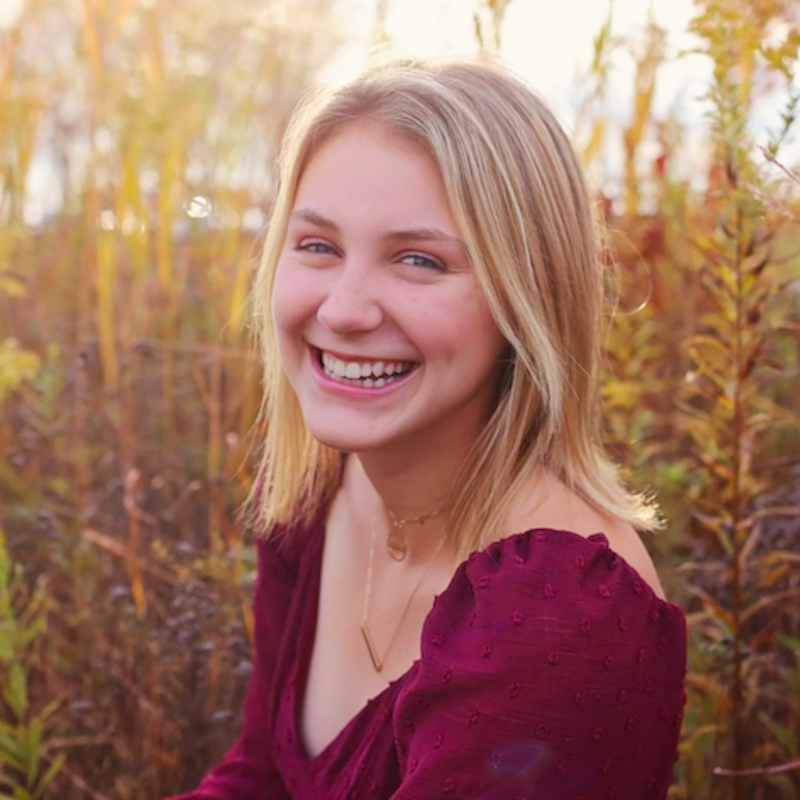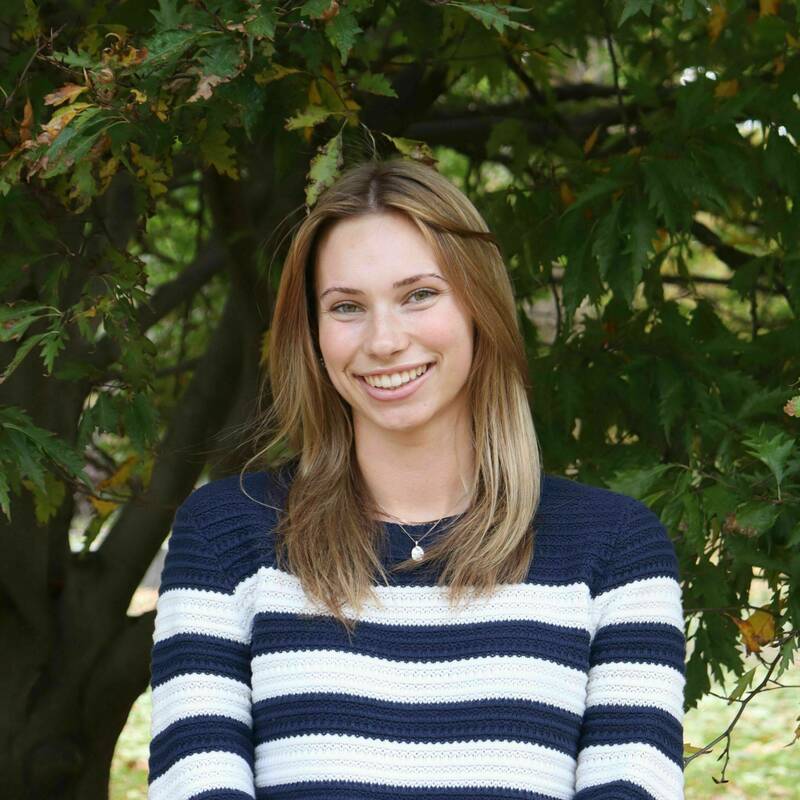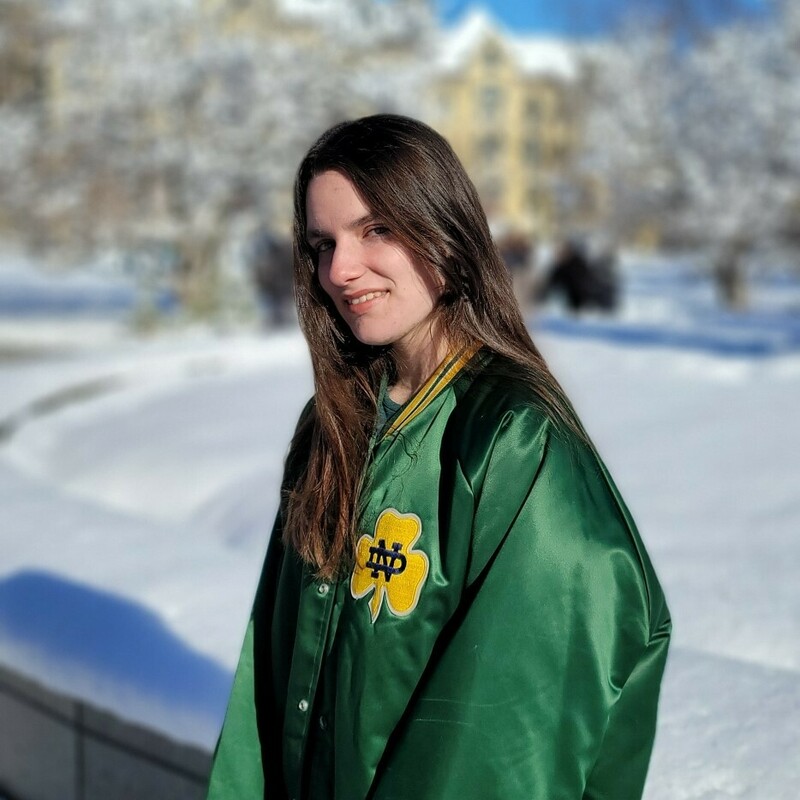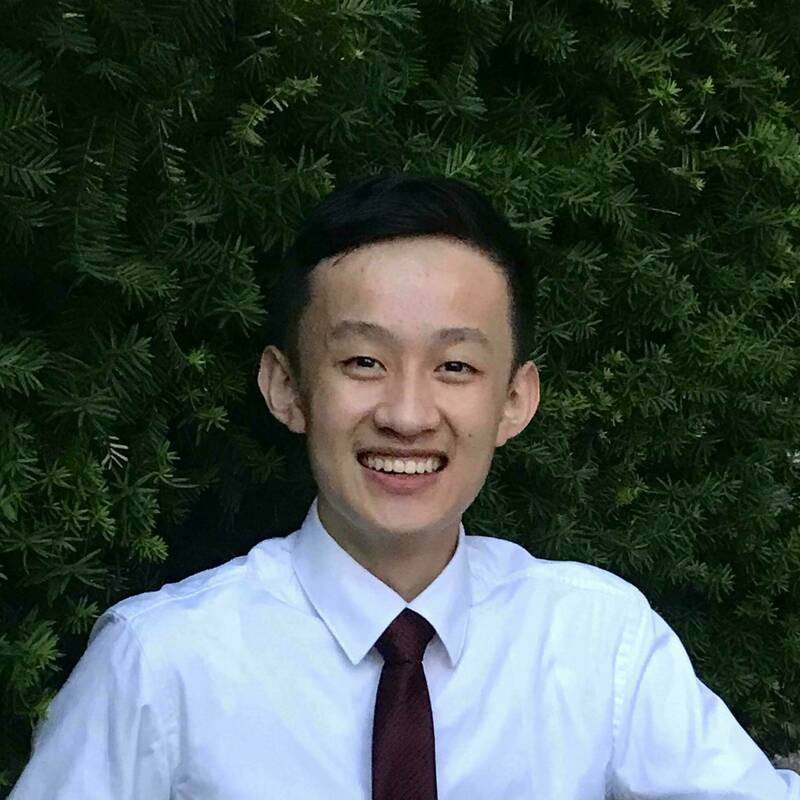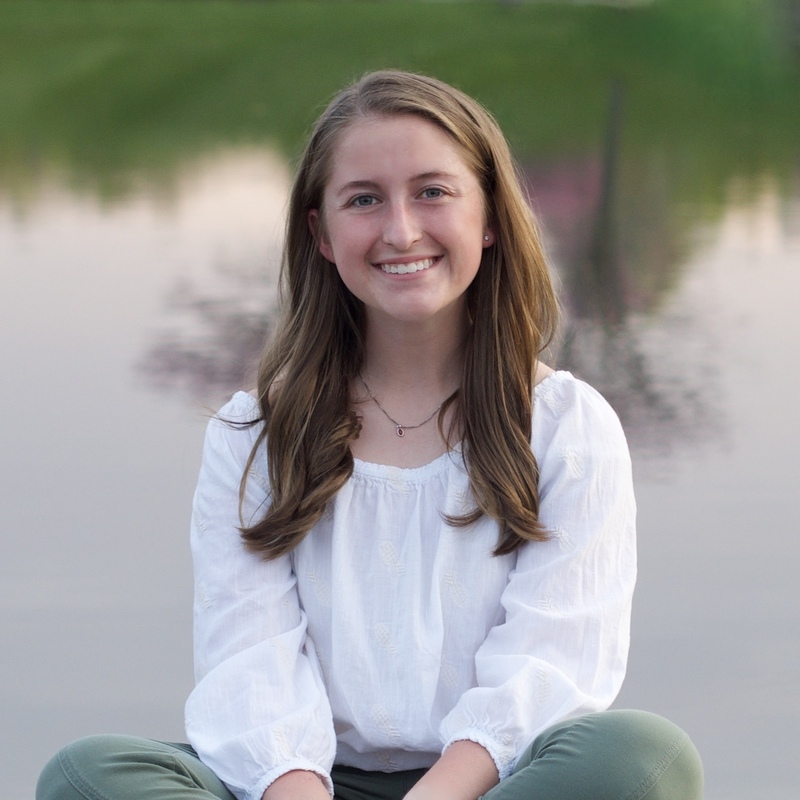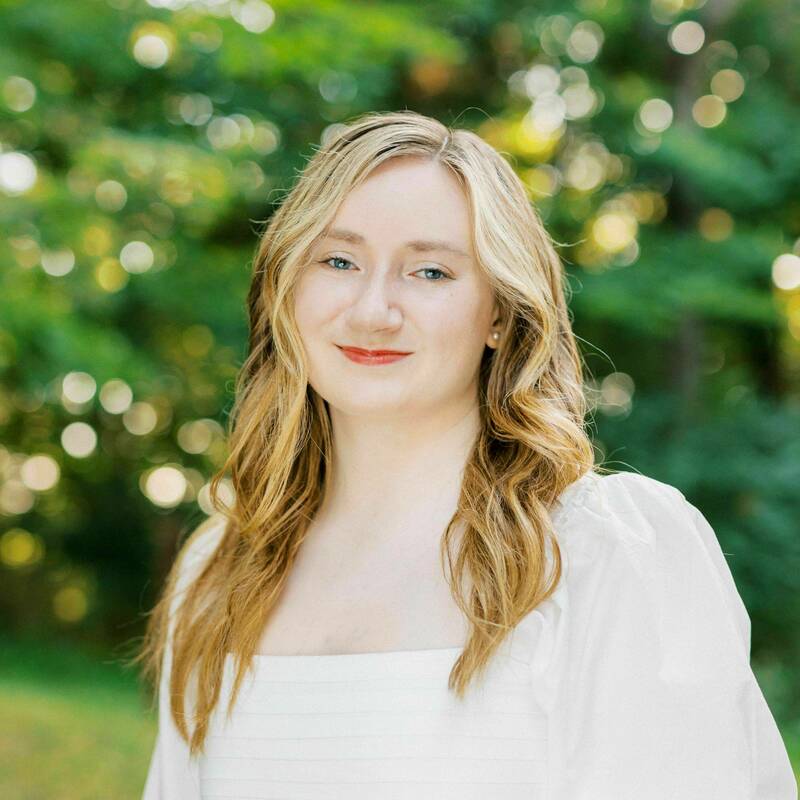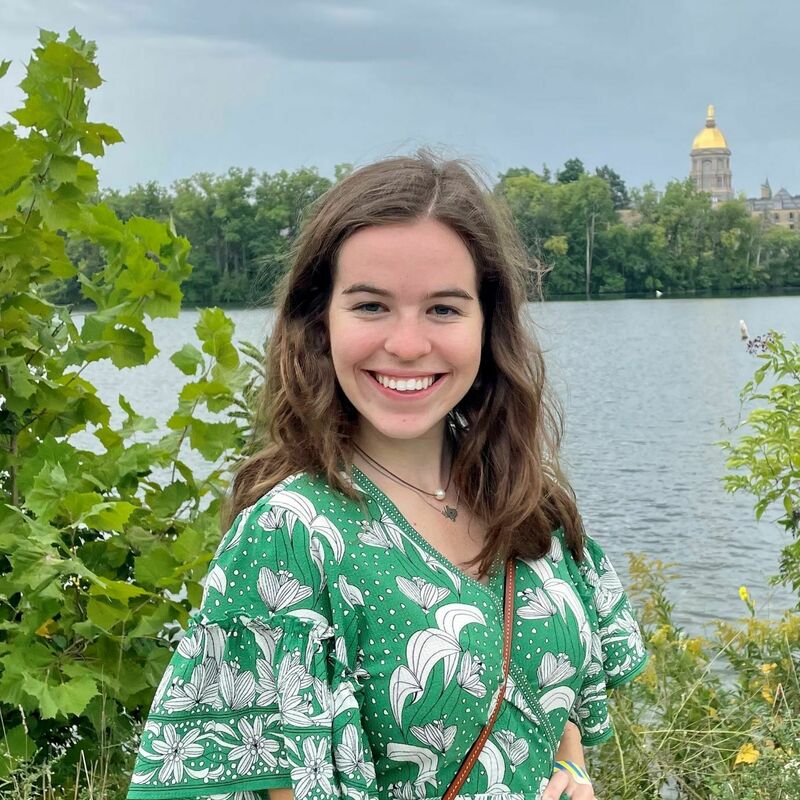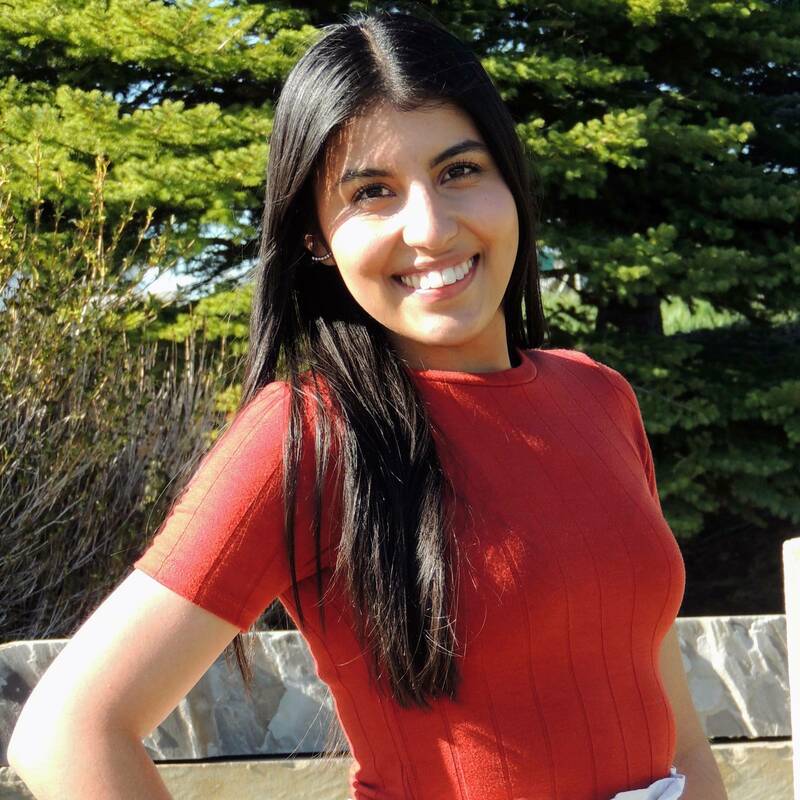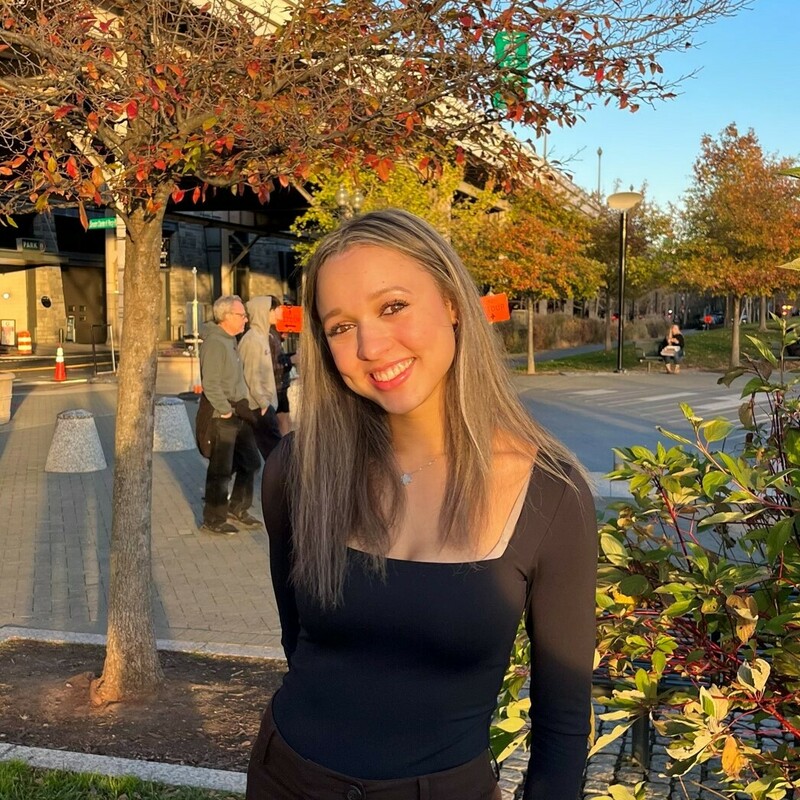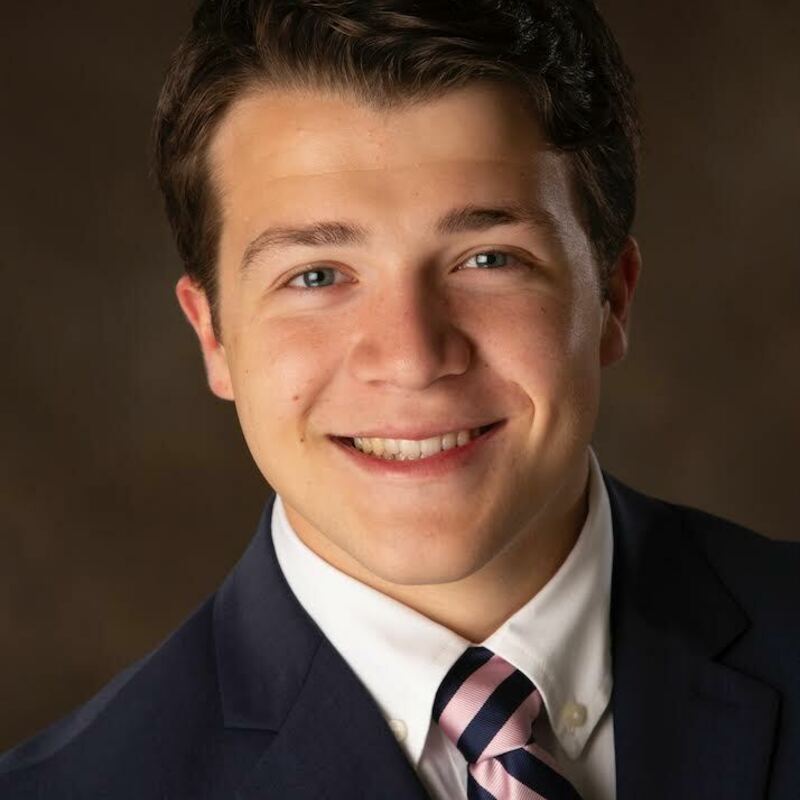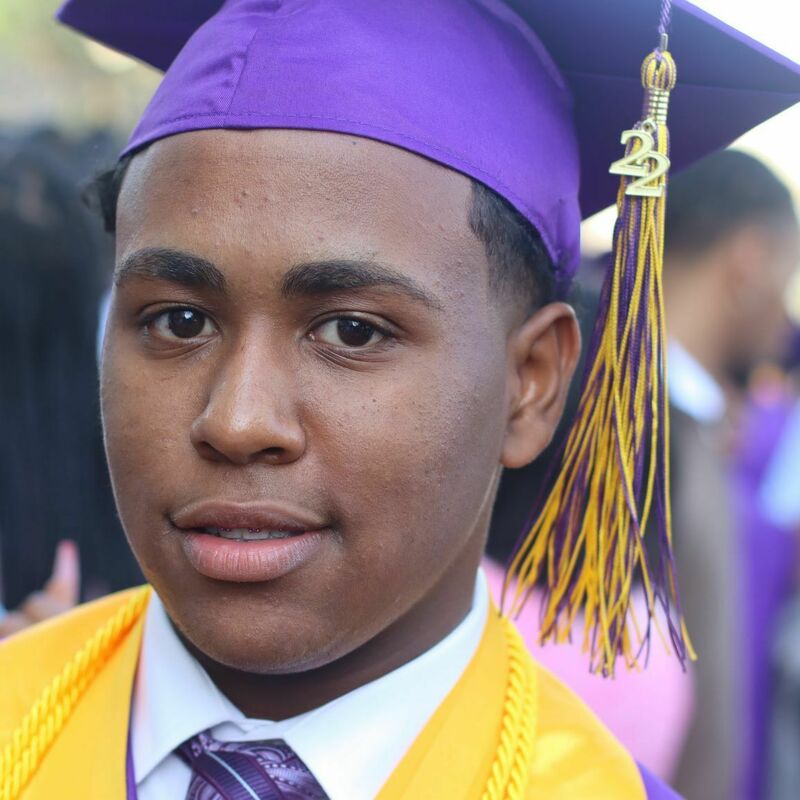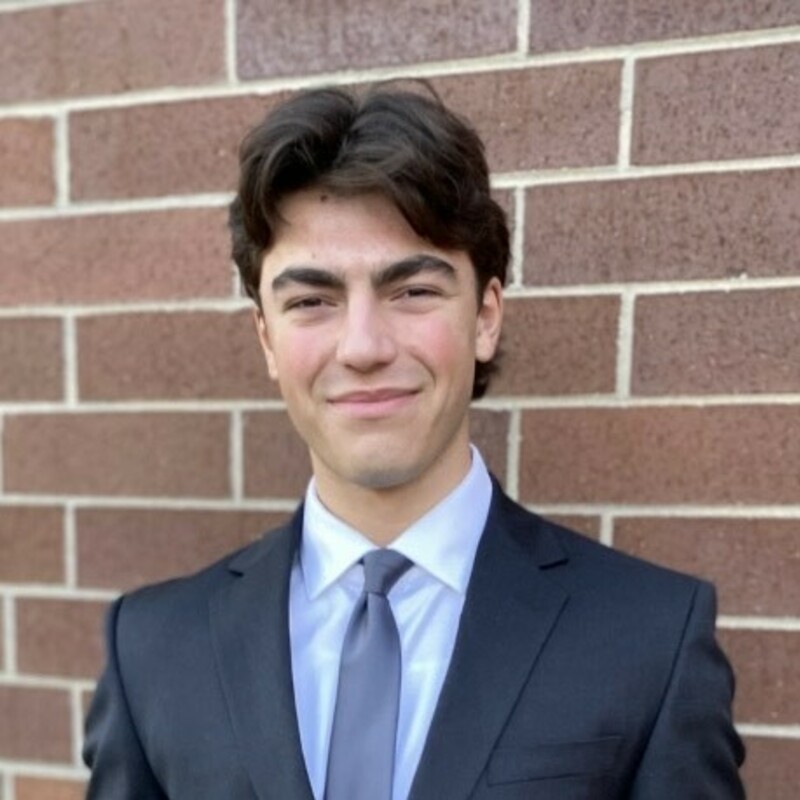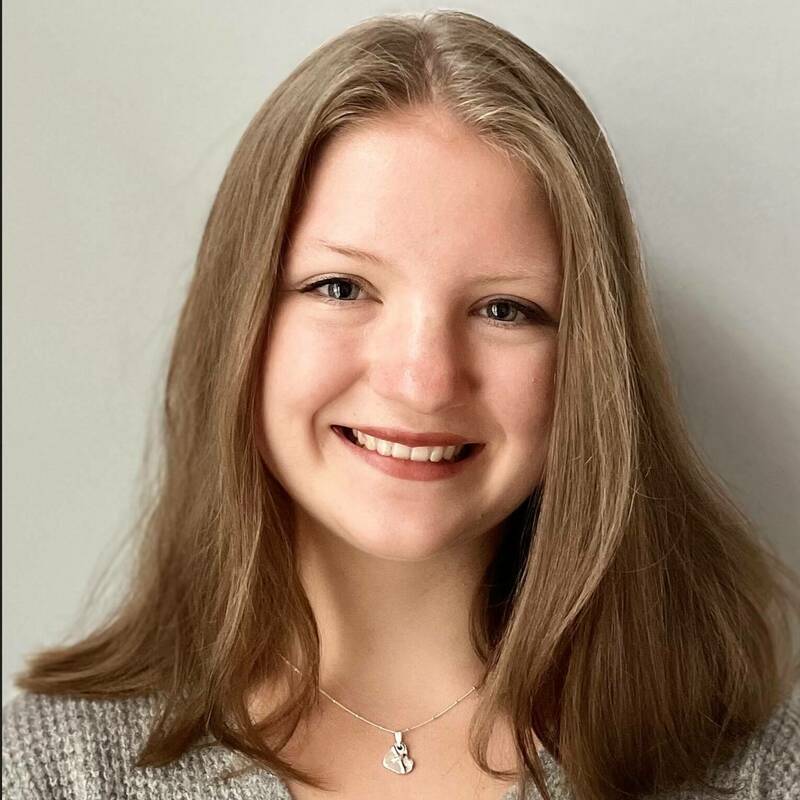Kaelegh Picco
Class Year: 2027
Hometown: Westchester, New York
Listen to Kaeleigh's Encounters Episode!
Throughout the course of my first semester here at Notre Dame, I have experienced
growth for good. The last three months have brought me through a vast range of emotions and
experiences. I have encountered loneliness, doubt, anxiety, and stress, but also joy, belonging,
positive affirmation, and faith. I have learned to not only accept, but appreciate all of these
encounters, and understand that they are all part of the process of the establishment of my own
identity.
While I did not include it on my semester map, for me, my journey of growth at the
University of Notre Dame did not begin with arriving on campus on August 18 th , but rather
August 17 th , at 4:00 am, in the kitchen of my childhood home. Still dark outside, the family truck
was packed, my mom, dad, and sister waiting for me in the driveway as I came inside one last
time to grab my mother’s ChapStick and a phone charger for my dad. This seemingly menial set
of tasks, I now realized, were ones that I had taken advantage of for the last eighteen years. I
looked around in a room that had seen so much, cooking and baking and screaming and tears on
the counter from laughter and tears on the table from talks after meals and Cheerio dust on the
floor and the fingerprints on the windows looking out to the yard where I had taken my dog for
countless walks, around this time of morning actually, when he was a puppy. Now Lucky is
sitting in front of me, some indescribable understanding in his big brown eyes. He knew, he
knew this was the end of something. Thus, I would like to say that the first thing I encountered
along my journey at Notre Dame is a feeling of loss. I understood, in that moment (ChapStick
and charger in hand), that never again would I live in my home as a child.
First arriving to campus, only a little over twenty-four hours later, I was incredibly
nervous about the idea of meeting and making connections with new people. On some level, I
had felt broken, like I had left a piece of my heart in my home, which suddenly was hundreds of
miles away. Yet within minutes of stepping foot on Notre Dame, I quickly learned that having a
breakable heart is “worth celebrating because it allows you to grow and expand. And you get to
put your heart back together.” (Women Find Healing Through Kintsugi workshop (Grotto)-
Moreau FYE Week Ten) Thus, that week I also encountered hope and joy through the meeting of
countless people and forming of new relationships. Rather than broken, my heart had grown, as I
had found so much new love and respect for so many new people.
I began to encounter feelings of dissonance in my second week of classes at Notre Dame.
I was intrigued and thoroughly engaged in each one of them, blown away by both the passion of
my professors and my peers. However, at first, rather than be inspired by this passion and fervor
for learning and teaching, I was terrified of it. I began to encounter doubt and feel the anxiety of
‘imposter syndrome’ set in.
Yet, through what we have learned about encountering these types of feelings in Moreau,
I understand the importance of not being so incredibly hard on yourself every moment of every
day. I worked to realize that there is always ‘one more thing’ that can be done, has helped me to
realize the importance of stopping, slowing down, and prioritizing not only the work that I feel I
must accomplish but my own personal well-being.
Now, nearing the end of the first semester, I have come back to campus ready to
finish this chapter using the lessons I have learned so far through my peers, professors, and
experiences at Notre Dame, with the understanding, perhaps even excitement, that I am only
halfway there.
